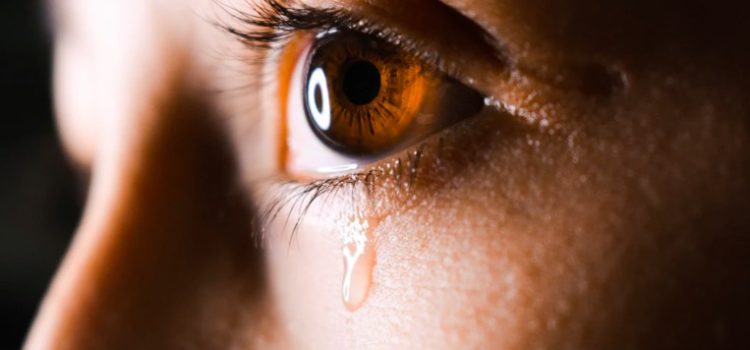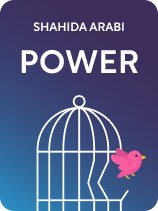

This article is an excerpt from the Shortform book guide to "Power" by Shahida Arabi. Shortform has the world's best summaries and analyses of books you should be reading.
Like this article? Sign up for a free trial here.
Did you just get out of an abusive relationship? How can you recover from a narcissistic relationship?
In Power, Shahida Arabi says that even after ending a relationship with a narcissist, the abuse may have long-lasting effects such as PTSD, low self-worth, depression, and more. Because of these wide-ranging effects, healing can be a years-long process.
This is how to recover from a narcissistic relationship, according to Shahida Arabi.
Post-Relationship Recovery
Arabi writes that it’s important to be kind to yourself during the process of learning how to recover from a narcissistic relationship by giving yourself plenty of time and allowing yourself to feel the full range of emotions.
Arabi also recommends that you: 1) seek professional care, 2) practice self-care based on your personal preferences, and 3) do activities that stimulate feel-good brain chemicals.
| Long-Term Effects of Abuse and the Timeline for Healing As Arabi points out, PTSD and CPTSD are two main long-term effects of narcissistic abuse, and they’re also common in abuse survivors in general. PTSD is a mental health condition caused by an extremely distressing event, and CPTSD is a condition usually caused by chronic or prolonged experiences of distress. Other experts support Arabi’s assertion that emotional abuse can lead to both types of this condition. Some of the common symptoms of PTSD and CPTSD include flashbacks, nightmares, and intense feelings of sadness, fear, and guilt. Compared to PTSD, CPTSD tends to result in greater difficulty managing emotions, interpersonal relationships, and low self-esteem. In The Body Keeps the Score, Bessel van der Kolk explains that victims of abuse are often haunted by the shame of their own actions or inaction during the traumatic experience rather than the atrocity of their abuser’s actions. Therefore, the trauma has a deep impact on their self-view and ability to interact with others. Additional long-term effects of emotional abuse can include aggression toward others, eating disorders, substance abuse, and lower performance at work or school. Other experts agree with Arabi that healing from emotional abuse is a long-term process that varies for everyone. Some factors that can lengthen the timeline for healing include: physical and sexual abuse on top of emotional abuse, a lack of support system of family, friends, and a therapist, difficulty acknowledging the abuse, and a lower level of natural resilience. |
Professional Care
During or after an abusive relationship, Arabi writes, it’s important to speak to professionals who can help you make a plan to protect your physical and psychological safety and obtain legal support if necessary. Arabi’s website Self-Care Haven provides some resources for urgent needs, such as a mental health crisis. In addition, mental health professionals can help you determine what care you need to treat trauma symptoms and other psychological effects.
(Shortform note: As mentioned earlier in the guide, Arabi explains that ending a relationship with an abusive partner can be extremely difficult, and there can be many similar barriers to seeking professional intervention or support. For example, victims may fear that they won’t be believed, feel ashamed or embarrassed about what’s happened to them, not recognize the abuse because of the psychological manipulation, think they need to override their own needs to care for their children, lack trust in the medical system or law enforcement, and fear retaliation if their partner finds out they told someone about the abuse. Given these challenges, it can make a big difference when a friend steps in to offer resources to someone they suspect is being abused.)
Outside of traditional Western medicine, there are also many alternative forms of treatment that may help with long-term recovery. These include reiki healing (in which someone uses their hands to heal your spiritual energy), self-hypnosis (to improve your confidence and self-image), eye movement desensitization (a multistep process that uses rapid eye movements to counteract the effects of traumatic memories), and the emotional freedom technique (involves tapping specific points on your body to release blocked energy).
(Shortform note: Some researchers assert that these types of techniques—referred to as “complementary and alternative medicine” (CAM)—are particularly useful for treating PTSD in patients who don’t get the desired result from conventional treatments or who experience negative side effects from pharmaceutical treatments (like antidepressants). As the term CAM implies, they can either be used in place of or in conjunction with other types of therapies depending on the individual needs of the patient.)
Self-Care
Arabi asserts that in addition to seeking professional care, there are numerous avenues for healing through strategies you can do on your own or with non-medical practitioners. These methods offer ways to regain your confidence, practice self-compassion, and process your experience and emotions. Some can be done individually or with validating, supportive people who value you and won’t judge or blame you for your abuse.
Arabi’s suggestions include: spending time in nature, music therapy, support groups, reciting positive affirmations, practicing a religion, art therapy, narrative therapy (where you learn to re-frame the traumatic events in an empowering way), yoga, and inner child work (where you give yourself the soothing affirmation you didn’t receive as a child).
(Shortform note: In Codependent No More, Melody Beattie defines self-care as living responsibly by being mindful of your needs, wants, emotions, and responsibilities toward yourself and others. Therefore, in addition to using the self-improvement and self-soothing strategies that Arabi describes, Beattie’s definition includes detaching from others by avoiding taking responsibility for their needs. One way to do this is to regularly ask yourself, “What do I want or need in this moment?” Although Beattie’s advice is targeted toward codependent relationships and relationships in general, her recommendation may also apply to victims of abuse who feel responsible for the well-being or feelings of their abuser.)
Healthy Activities That Stimulate Feel-Good Brain Chemicals
The next type of care Arabi recommends is seeking out healthy activities that will stimulate the release of feel-good brain chemicals such as oxytocin, dopamine, adrenaline, and serotonin. This strategy is helpful because you may experience withdrawal from these chemicals after leaving a narcissistic partner, and these activities replace your biochemical addiction to the narcissist with safer activities that you’re in control of.
Oxytocin is a hormone that’s released from bonding with people through some kind of physical intimacy. Arabi says that if you associate oxytocin with a narcissist ex-partner, it’s helpful to find new ways to boost oxytocin such as cuddling with animals or other loved ones, hugging yourself, dating casually, and spending time with trusted friends.
Dopamine is a neurotransmitter that makes us feel happy—a chemical you may have previously received from intermittent kindness from a narcissistic partner in between the emotional abuse.
Adrenaline is a hormone produced as a fear response (which you may have gotten from the constant fear that your narcissistic partner would lash out at you), and it also has an antidepressant effect.
Arabi says that instead of getting your fill of these chemicals from an ex-partner, you can find new sources by trying new, scary activities like extreme sports, traveling to a new country, or going on a roller coaster. Doing things spontaneously will also increase the rush of pleasure you get from trying something new.
Serotonin is another hormone that stabilizes your mood and self-esteem, and Arabi writes that low levels of serotonin can cause you to mentally fixate on your ex-partner. She recommends increasing your serotonin levels by spending time in the sunlight, taking B-vitamin supplements, getting massages, focusing on happy memories, exercising, and taking medications that can be prescribed by a mental health professional.

———End of Preview———
Like what you just read? Read the rest of the world's best book summary and analysis of Shahida Arabi's "Power" at Shortform.
Here's what you'll find in our full Power summary:
- A look at the severe condition called Narcissistic Personality Disorder (NPD)
- How to avoid or end relationships with narcissists
- Advice for healing after narcissistic abuse






